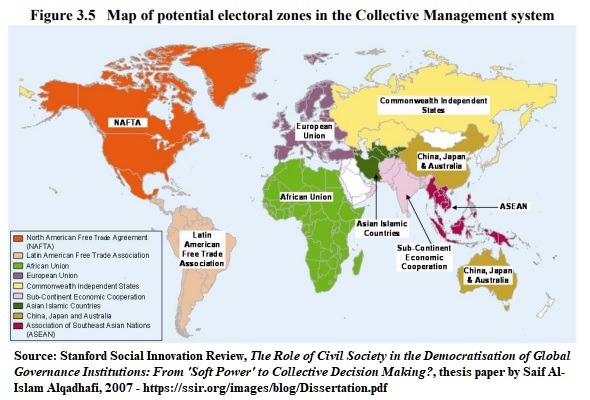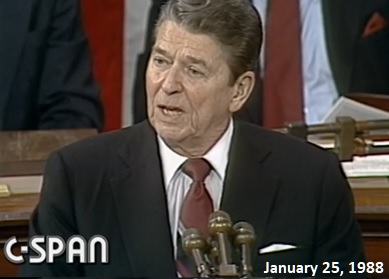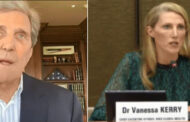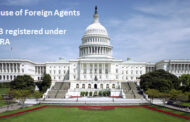Note: I’m still working on this but I wanted to make it convenient to get the links for the radio program, Govern America.
The ink was barely dry on the U.S. Senate’s ratification of the United Nations Participation Act of 1945 when the first UN conference on Trade and Development was scheduled.
Background
The first specialized agency to join the UN was the International Labour Office. They were originally chartered under the League of Nations and they were the first organization to transfer over from the League to the newly constituted UN.
The negotiations for the UN’s financial system began in the early 1940s at Bretton Woods, CT. Agreements were reached on the International Bank for Reconstruction and Development (World Bank) and the International Monetary Fund (IMF). The third leg of the international system was to be an International Trade Organization (ITO). UN Conferences on international organization of trade were held between 1946 and 1948.
The final agreement to establish the International Trade Organization (ITO) was completed in Havana, Cuba early in 1948. The charter they produced was nicknamed the Havana Charter.
Final Act of the United Nations Conference on Trade and Employment
The Economic and Social Council of the United Nations, by a resolution dated February 18, 1946, resolved to call an International Conference on Trade and Employment for the purpose of promoting the expansion of the production, exchange and consumption of goods.
The Conference, which met at Havana on November 21, 1947, and ended on March 24, 1948, drew up the Havana Charter for an International Trade Organization to be submitted to the Governments represented.
President Harry Truman transmitted the Charter to the U.S. Senate on April 28, 1949 with a Special Message. The U.S. Senate did not ratify the Havana Charter because of concerns for U.S. sovereignty.
Notice on page 7 of the pdf copy of the Havana Charter – the name Eric Wyndham White:
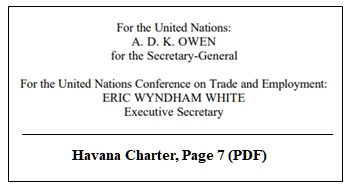
The following is an extract of the biography of Sir Eric Wyndham White’s posted on the Institute for Management Research, Radboud University, Netherlands (which appears to be a great resource).
Emphasis added –
His political leanings seem to have been progressive as he subsequently joined the Reform Club (1940-1980). While a student, he was a member of the British delegation that attended the 1937 congress of the International Chamber of Commerce (ICC), at which business leaders gathered to promote world peace through economic interdependence. In 1937 the ICC met in Berlin, a time when the worst effects of the Great Depression were lifting, but relations amongst states were toxic. Adolf Hitler welcomed the business representatives at the opening meeting and praised their efforts to use trade to bring peace to Europe. Despite such a cynical endorsement, Wyndham White believed that liberal international trade was essential to a prosperous and peaceful world. He attended another meeting of the ICC in Copenhagen in 1939.
. . . At the end of the (Havana) conference, part of the draft charter that dealt with tariff negotiations and some general trade rules were bundled with the results of tariff negotiations and introduced as a temporary agreement. It went by the name General Agreement on Tariffs and Trade and, over the course of the next year, it was taken up by 23 countries.
The almost passing reference to White’s attendance at the conferences of the International Chamber of Commerce belies the significance of that connection. The Havana Charter and the path White’s career in international trade tells the story. The story of the founding of the ICC was published (1938) in a book titled, Merchants of Peace: Twenty Years of Business Diplomacy through the International Chamber of Commerce (1919-1938), copyright by the Carnegie Endowment for International Peace. Thomas J. Watson, CEO of IBM became President of the ICC in 1937. The International Chamber of Commerce is a cartel of corporations that serve the interests of the cartel membership.
World Federalists vs Nationalists
Anarchy Defined As Nation-State Organization
On Sunday November 27,1938 The London Observer covered a speech by Lord Lothian, the wartime British Ambassador to the United States. Lord Lothian is a title. The Lord’s given name is Philip Kerr. The speech was titled “Wings Over History, A New Civilization.” In his speech he stated…. “the anarchy of multitudinous national sovereignties is about to dissolve . . . the world is going to fall into four or five main political and economic groups, each in great measure self-supporting, each under the leadership of a great State equipped with modern military and air power . . .”
In 1942, Morris Gomberg published a “Moral Map” of the plan for world reconstruction. Notice that the map corresponds to Lord Lothian’s description.
Journal of Liberal History
‘Pacifism is not enough; nor patriotism either’
The Life of Philip Kerr, Lord Lothian
New International Economic Order, Sixth Special Session, 9 April-2 May 1974
preferential treatment for “developing countries”
improved access to markets in developed countries through the progressive removal of tariff and non-tariff barriers and of restrictive business practices;
developed countries should make appropriate adjustments in their economies so as to facilitate the expansion and diversification of imports from developing countries and thereby permit a rational, just and equitable international division of labour
implementation, improvement and enlargement of the generalized system of preferences for exports of agricultural primary commodities . . .
Continue reading – page 10
I am text block. Click edit button to change this text. Lorem ipsum dolor sit amet, consectetur adipiscing elit. Ut elit tellus, luctus nec ullamcorper mattis, pulvinar dapibus leo.
After the failure to ratify the Havana Charter, the agreements on the World Bank and the (IMF) collectively known as the GATT) were left in place to use as a framework for the global financial system while negotiations for the establishment of an international trade organization continued over the next 55 years.
The Marrakesh Agreement was the final act establishing the World Trade Organization. The U.S. Congress voted to approve it in the Uruguay Round Agreements Act Retirement Protection Act of 1994.
Senate Roll Call Vote on H.R. 5110 (Uruguay Round Agreements Act Retirement Protection Act of 1994)
House Roll Call 507, Bill Number: H.R.5110 Note: there is a difference in the title of the legislation but the bill number is the same.
Source: Congress.gov 103rd Congress, All Actions, Public Law 103-465, December 8, 1994
International Chamber of Commerce – Merchants of Peace
The Charter is designed to do two things: to establish a code of international conduct to guide nations in dealing with the fundamental problems of world trade, and to create an agency, within the framework of the United Nations, to help implement this code.
. . . The Charter is the most comprehensive international economic agreement in history.
. . . The great structure of international cooperation that is being erected through the United Nations must rest upon a solid foundation of continuous cooperation in economic affairs. The Charter for an International Trade Organization is a necessary part of that foundation, along with the special arrangements that have been made in the fields of money and credit, transportation and communications, food and agriculture, labor and health.
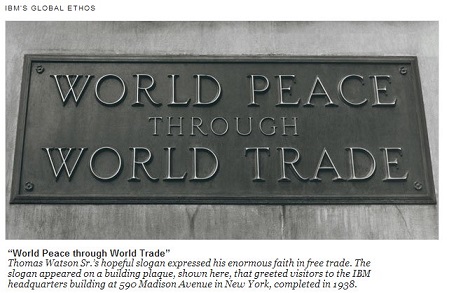
Saved Stuff
United Nations – British avarice behind a charitable façade; metastasis of the British Empire.
Articles 3 and 4 from the Charter of the United Nations, The Purposes of the United Nations are
3. To achieve international co-operation in solving international problems of an economic, social, cultural, or humanitarian character, and in promoting and encouraging respect for human rights and for fundamental freedoms for all without distinction as to race, sex, language, or religion; and
4. To be a centre for harmonizing the actions of nations in the attainment of these common ends.
The 2nd Session of the Preparatory Committee of the UN Conference on Trade and Employment, August 1947
The third and final conference was held in Havana, Cuba in 1947-48.

